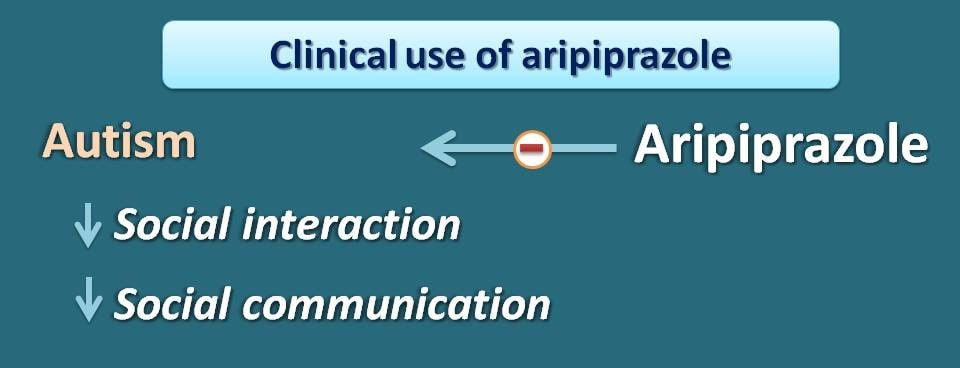Aripiprazole – An atypical antipsychotic with unique action
by egpat 02 Aug 2019
Aripiprazole is a second generation or atypical antipsychotic commonly known by its brand name abilify. This new generation antipsychotic is prescribed for psychotic disorders like schizophrenia. It is also indicated for bipolar disorder, tourette’s disease and autism. Whatever may be the clinical indication the advantage of aripiprazole lies in its partial agonism on dopamine receptors. It is one of an atypical antipsychotic with less extrapyramidal side effects.
What it is?
Unlike typical antipsychotics, aripiprazole doesn’t belong to a well defined chemical category such as phenothiazines or butyrophenones. Being an atypical antipsychotic, its structure has no relation with other drugs in this category.
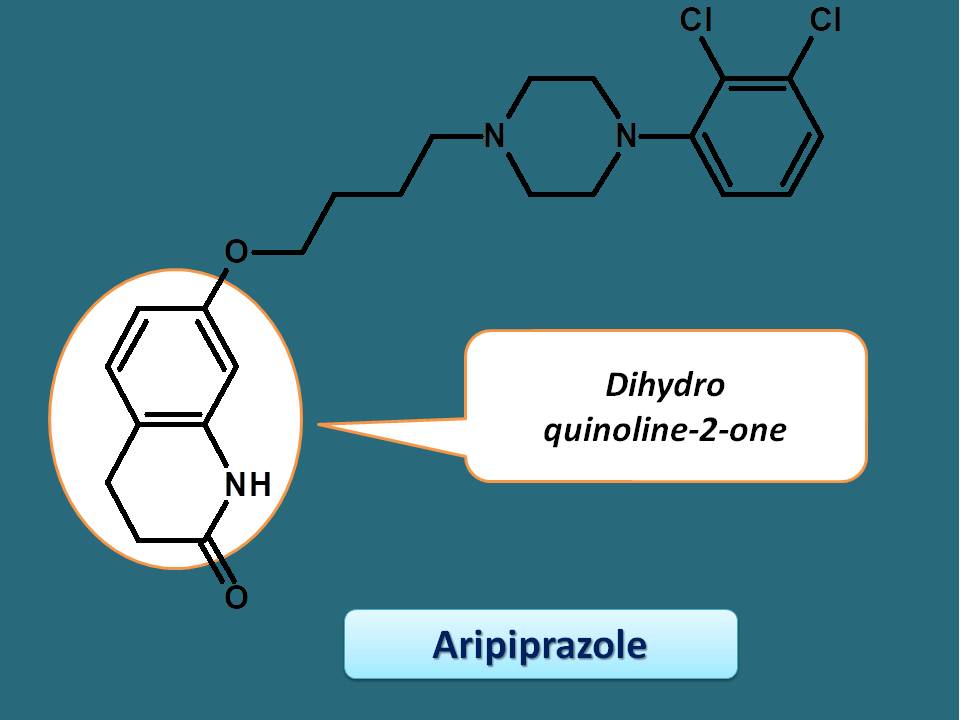
Chemically it has dihydroquinolinone ring with large side chain at 7th position. Unlike phenothiazines, its structure has no exact relation with its action on dopamine receptors.
How it acts?
Even the exact mechanism by which aripiprazole acts as atypical antipsychotic is not clear but still the current evidence indicates that the drug acts as partial agonist at dopamine receptors. This partial agonist activity brings an advantage in its action making the drug to show less extrapyramidal side effects.
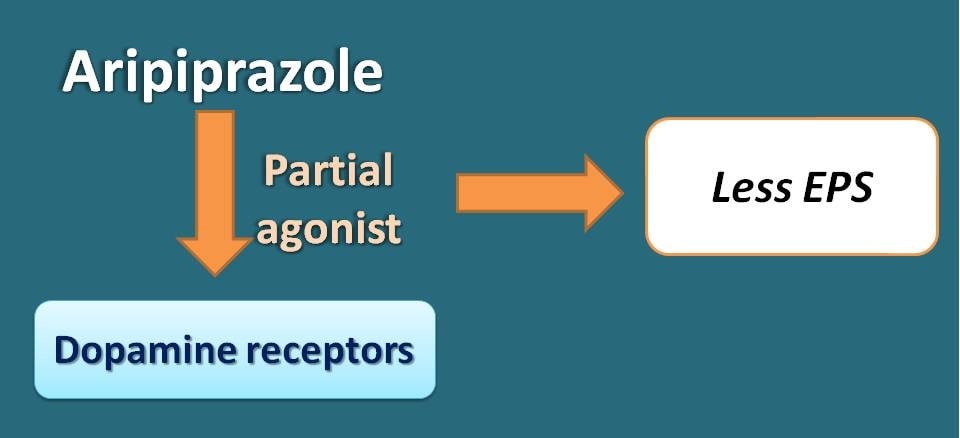
As a partial agonist, aripiprazole can produce a dual action on D2 receptors. Within the CNS, at those areas where dopamine is excessively fired there this aripiprazole acts as an antagonist thereby prevents excessive dopamine action. For example, symptoms of schizophrenia are more associated with elevated levels of dopamine at mesolimbic or mesocortical pathways. So at these pathways aripiprazole acts as antagonist.
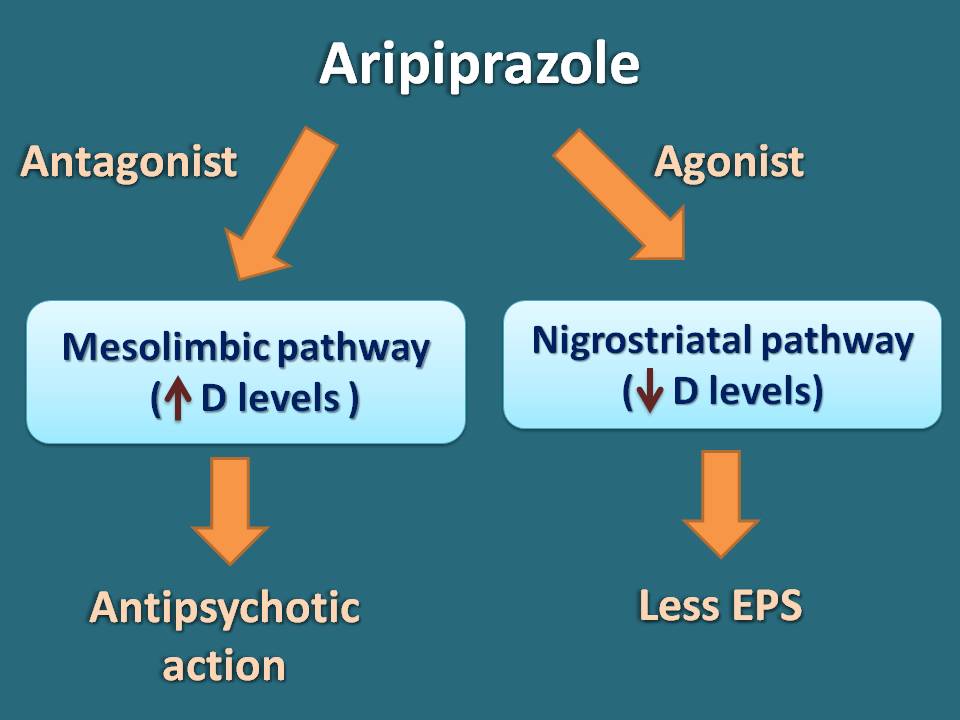
Contrarily, at those areas where dopamine levels are insufficient, aripiprazole acts as agonist increasing its action. For example, decreased levels of dopamine at nigrostriatal pathway may cause motor disturbances like extrapyramidal side effects (EPS). Since aripiprazole increases dopamine action at these pathways, it has less chance to produce extrapyramidal side effects.
What are the side effects of aripiprazole?
As the drug belongs to atypical category it has less chance to produce EPS which is generally more troublesome in the patient. Still this drug is not free of side effects but it produces few of side effects important to consider.
One of the main side effects of aripiprazole is light headedness and dizziness which may cause of loss of balance and falling in the patients. It can also cause excessive secretion of saliva from mouth which is highly uncomfortable to the patient.
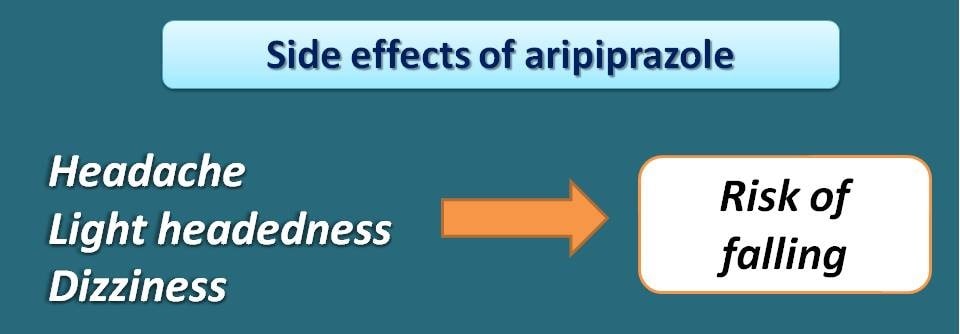
Other side effects like constipation, blurred vision, allergic reactions, nausea and vomiting are common with this drug
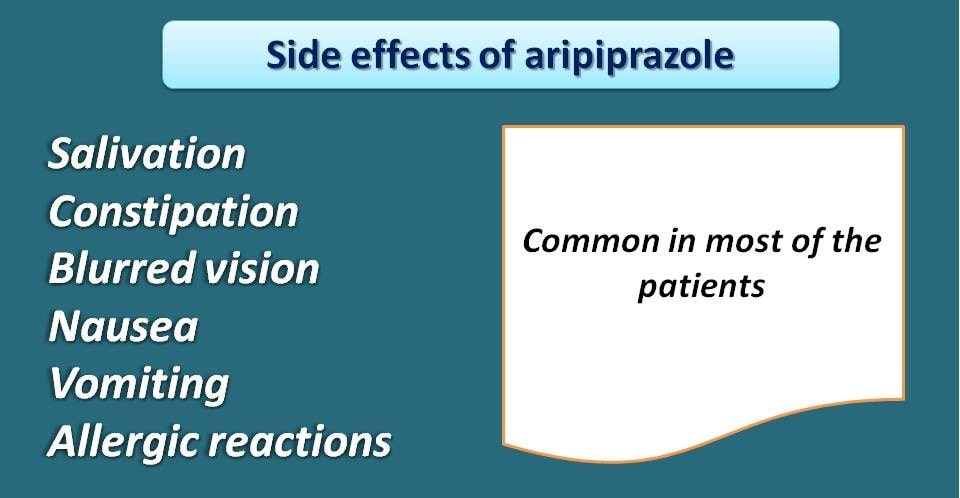
Weight gain is another problem with aripiprazole as it is seen with many of the atypical antipsychotics. Even the clear reason for this is not known but antagonism of 5-HT2A receptors may play a vital role in increasing body weight.
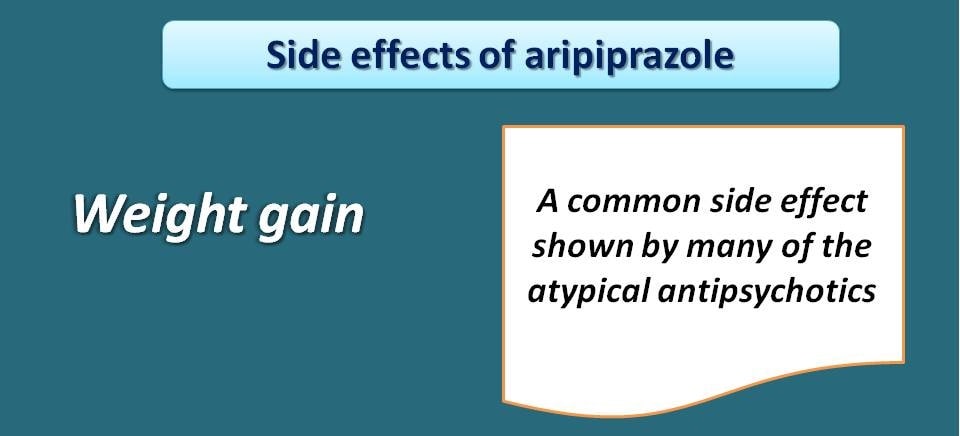
One more significant side effect of concern is neuroleptic malignant syndrome. This is a severe adverse reaction where body temperature is raised abnormally with muscle rigidity, mental retardation and tachycardia. Again this side effect is common with many of the antipsychotics like chlorpromazine.
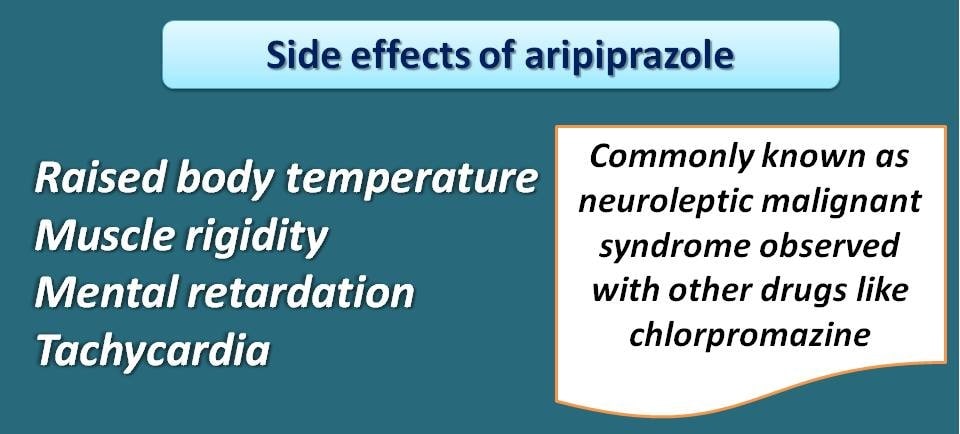
Where it is used?
Aripiprazole is one of the widely prescribed drugs for treatment of schizophrenia. Due to its less EPS and better therapeutic efficacy on both positive and negative symptoms of schizophrenia, this drug is well prescribed under the brand name abilify.
Apart from its use in psychosis, aripiprazole is also approved for treatment of bipolar depression where state of the mood in the patient may swing between depression and mania.
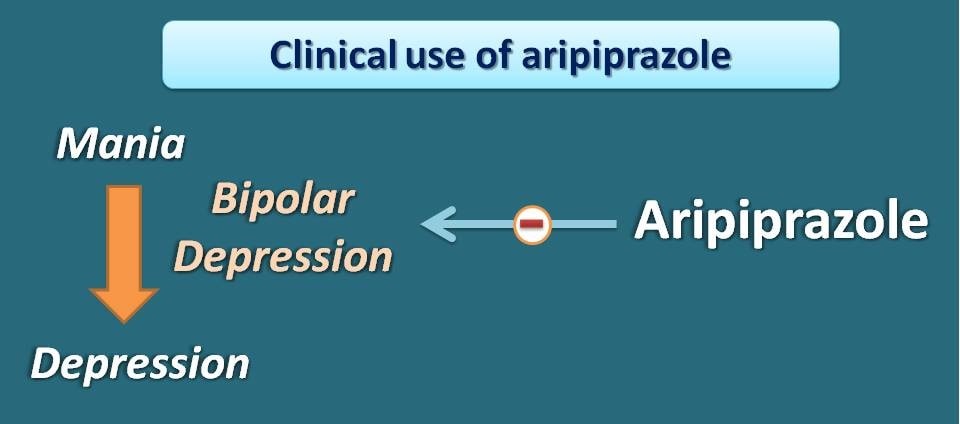
Tourette syndrome is a neuronal disorder mainly observed in children with involuntary movements and unusual vocal expressions. Aripiprazole is again proved beneficial in treating this condition.
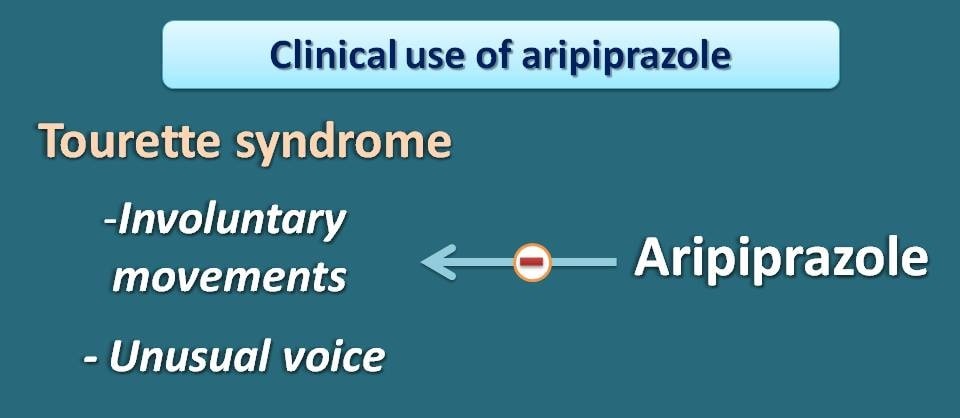
Finally aripiprazole can also be used in hyperactivity disorder such as autism which is again a neuronal disorder that is mainly found in children. This is associated with reduced social interaction and improper communication such that children are unable to express and interact with other in their daily activities. As aripiprazole is effective in treating social withdrawal in psychosis, here again it was proved beneficial.
